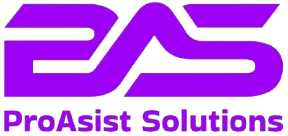Level Up Your Career: Your Guide to Cracking Backend Developer Roles in India
The digital backbone of every successful application lies in its backend. As a Backend Developer, you’re the architect, the builder, and the guardian of this critical infrastructure. With the booming tech industry in India, the demand for skilled backend developers is soaring. But landing your dream role requires more than just coding prowess. This blog will equip you with the strategies and insights to navigate the interview process and ace your backend developer applications across India.
Understanding the Backend Developer Landscape in India
Backend development in India is a dynamic field, constantly evolving with new technologies and paradigms. Interview expectations often reflect this, emphasizing a strong understanding of:
- Core Programming Languages: Proficiency in languages like Python, Java, Node.js, Go, Ruby, PHP, or C# is fundamental. Expect questions on syntax, data structures, algorithms, and language-specific features.
- Frameworks: Familiarity with popular backend frameworks relevant to your chosen language (e.g., Django, Flask, Spring Boot, Express.js, Ruby on Rails, Laravel, .NET) is crucial. Understanding their architecture, key components, and best practices is often tested.
- Databases: A solid grasp of relational databases (SQL, MySQL, PostgreSQL) and NoSQL databases (MongoDB, Cassandra, Redis) is essential. Expect questions on database design, querying, indexing, transactions, and scalability.
- API Design and Development: Building and consuming RESTful or GraphQL APIs is a core responsibility. Understanding API design principles, security, versioning, and documentation (e.g., Swagger) is vital.
- Server-Side Architecture: Concepts like microservices, monolithic architecture, serverless computing, and message queues (e.g., Kafka, RabbitMQ) are increasingly important, especially for mid-to-senior level roles.
- Cloud Technologies: Familiarity with cloud platforms like AWS, Azure, or GCP is a significant advantage. Understanding services related to compute, storage, databases, and deployment is often expected.
- DevOps Fundamentals: Basic knowledge of CI/CD pipelines, containerization (Docker, Kubernetes), and infrastructure as code (IaC) can set you apart.
- Security Best Practices: Understanding common web vulnerabilities (OWASP Top 10) and how to implement secure coding practices is paramount.
Strategies to Conquer Your Backend Developer Interviews
Cracking these interviews requires a strategic blend of technical mastery, problem-solving skills, and effective communication. Here’s your roadmap:
1. Deep Dive into Fundamentals:
- Master Your Chosen Language(s): Go beyond basic syntax. Understand memory management, concurrency models, design patterns, and advanced features of your preferred language(s). Practice writing clean, efficient, and well-documented code.
- Solidify Your Data Structures and Algorithms (DSA): This remains a cornerstone. Be comfortable implementing common data structures and algorithms, analyzing their time and space complexity, and applying them to solve backend-specific problems.
- Become a Database Guru: Understand different database types, their strengths and weaknesses, and when to use them. Practice writing complex SQL queries, designing efficient schemas, and understanding database performance optimization techniques. For NoSQL, grasp the different data models and their use cases.
2. Embrace Frameworks and Ecosystems:
- Choose Wisely and Go Deep: Focus on mastering one or two relevant frameworks thoroughly rather than having superficial knowledge of many. Understand their core principles, architectural patterns (e.g., MVC, MVVM), and best practices.
- Explore the Ecosystem: Familiarize yourself with related libraries, tools, and middleware within your chosen framework’s ecosystem. Understand how they integrate and solve common backend challenges.
3. Architect and Design with Confidence:
- Understand API Principles: Learn the principles of RESTful API design (HTTP methods, status codes, resource naming) and GraphQL. Be able to design well-structured and secure APIs.
- Grasp System Design Concepts: For mid-to-senior roles, system design is critical. Practice designing scalable and resilient backend systems, considering factors like load balancing, caching, data partitioning, and fault tolerance. Resources like “Grokking the System Design Interview” are invaluable.
- Think About Scalability and Performance: Understand techniques for optimizing backend performance, such as caching strategies, database indexing, and asynchronous processing.
4. Cloud and DevOps Awareness:
- Explore Cloud Platforms: Familiarize yourself with the services offered by at least one major cloud provider (AWS, Azure, GCP) relevant to backend development (e.g., compute instances, managed databases, serverless functions, storage solutions).
- Understand CI/CD: Learn the basics of Continuous Integration and Continuous Delivery pipelines and how they automate the software development lifecycle.
- Get Comfortable with Containerization: Docker and Kubernetes are increasingly prevalent. Understand how they work and their benefits for deploying and managing backend applications.
5. Prioritize Security:
- Learn the OWASP Top 10: Understand common web vulnerabilities like SQL injection, cross-site scripting (XSS), and authentication flaws.
- Implement Secure Coding Practices: Be aware of how to prevent these vulnerabilities in your code and design secure backend systems. Understand authentication and authorization mechanisms (e.g., JWT, OAuth).
6. Practice, Practice, Practice:
- Solve Backend-Focused Problems: Look for coding challenges and interview questions specifically related to backend development, such as API implementation, database querying, and basic system design scenarios. Platforms like HackerRank, LeetCode (focus on database and design problems), and specialized interview prep sites can be helpful.
- Build Personal Projects: Showcase your skills by building your own backend applications. This demonstrates practical experience and allows you to talk about real-world challenges and solutions during interviews.
- Contribute to Open Source: Contributing to open-source backend projects is a great way to learn from experienced developers and showcase your abilities.
7. Ace the Interview Rounds:
- Coding Rounds: Be prepared to write code that is not only correct but also clean, efficient, and well-documented. Explain your thought process and the time/space complexity of your solution.
- Technical Discussions: Be ready to discuss your past projects in detail, explaining the architecture, technologies used, challenges faced, and your contributions. Be honest about your strengths and weaknesses.
- System Design Rounds: Approach these rounds by clarifying requirements, discussing different architectural options and their trade-offs, and focusing on scalability, reliability, and performance.
- Behavioral Interviews: Prepare using the STAR method to showcase your problem-solving skills, teamwork abilities, communication skills, and how you handle challenging situations in a backend development context.
8. Tailor Your Approach:
- Research the Company and Role: Understand the company’s domain, tech stack, and the specific requirements of the backend developer role you’re applying for. Tailor your preparation to align with their needs.
- Highlight Relevant Experience: Emphasize projects and experiences that directly relate to the technologies and challenges mentioned in the job description.
9. Communicate Effectively:
- Think Out Loud: During coding and design rounds, verbalize your thought process. Explain your reasoning and the decisions you’re making.
- Ask Clarifying Questions: If you’re unsure about a requirement or a question, don’t hesitate to ask for clarification. This shows engagement and a desire to understand the problem fully.
- Be Concise and Clear: Articulate your technical concepts and solutions in a clear and concise manner.
Final Thoughts
Cracking backend developer roles in India requires a combination of strong technical skills, a problem-solving mindset, and the ability to communicate effectively. By focusing on the fundamentals, embracing relevant technologies, practicing diligently, and tailoring your approach, you can significantly increase your chances of landing your dream backend development job. Stay curious, keep learning, and good luck on your interview journey!
![Untitled design (1)[1]](https://proasistsolutions.com/wp-content/uploads/2021/04/Untitled-design-11-e1744036396309.png)



